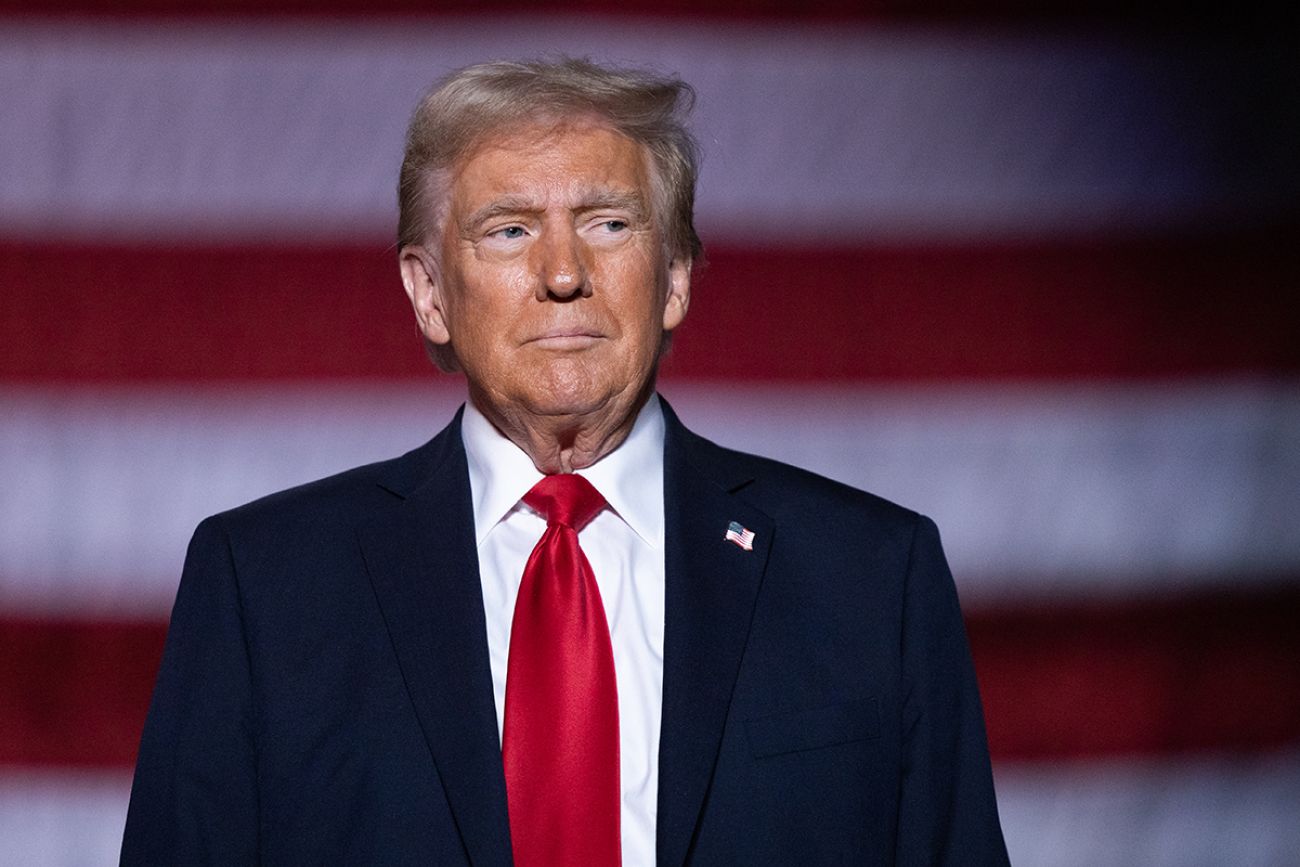Trump announces sweeping new tariffs: What they mean for Michigan

- President Donald Trump announced near universal 10% tariffs on foreign imports, more for so-called ‘worst offender’ countries
- Sweeping tariffs on vehicles, key auto parts take effect this week
- Experts say many uncertainties remain for impacts on Michigan, though consumer price increases are possible
In a significant escalation of his administration’s aggressive trade strategy, President Donald Trump unveiled plans for 10% tariffs on nearly all foreign imports — as well as higher levies on products from dozens of countries — hours before 25% tariffs on vehicle imports are set to take effect.
Calling Wednesday “Liberation Day,” Trump argued international trade policies have disadvantaged US workers for decades. He claimed the sweeping tariffs — set to start April 5 and ramp up April 9 for countries including China, Japan and the European Union — will boost the nation’s manufacturing base and raise funds for lowering taxes and reducing the national deficit.
“Our country and its taxpayers have been ripped off for more than 50 years, but it is not going to happen anymore,” Trump said during a speech at the Rose Garden. “It's not going to happen.”
Uncertainty remains as to what the administration’s tariff plan means for Michigan’s economy, though experts foresee increased prices for consumers and retaliatory tariffs from other countries that could undo any potential benefits.
“In the sense of applying to a very broad range of goods and services, I would expect the cost-benefit ratio of those tariffs to be less favorable to Michigan,” said Gabriel Ehrlich, an economic forecaster at the University of Michigan.
“At least with the auto tariffs, there is an important local industry that they're aiming to protect,” he continued, noting that auto import tariffs set to begin Thursday will nonetheless be “very disruptive.”
What’s new
Trump on Wednesday announced a “baseline” 10% tariff on nearly all imports. He also singled out dozens of other countries that would be subject to even higher tariffs, including 20% tariffs on the European Union, 34% in additional tariffs on China and 24% tariffs on Japan.
Related:
- Tariff timeline: Trump’s trade actions and how they impact Michigan
- Michigan farmers facing ‘uncertain future’ amid funding freezes, tariff tensions
- Travel from Canada to Michigan dips 10% amid boycotts, border security fears
The Trump administration has categorized these as "reciprocal" tariffs on trade partners, reportedly basing the higher tariff rates on how much other countries tax US exports, as well as other factors deemed “trade barriers” to foreign markets.
Canada and Mexico are by far Michigan’s biggest international trading partners, though China, Germany and Japan round out the state’s top five international export markets.
Some Michigan leaders have been open to targeted tariffs, though Rep. Debbie Dingell, D-Ann Arbor, said Wednesday she was concerned about “the chaotic and immediate implementation of these wide-reaching tariffs.”
What’s coming
Last week, Trump announced plans for broad tariffs targeting the auto industry, including 25% tariffs on all finished foreign-made cars and light trucks and key automobile parts such as engines, transmissions, powertrains and electrical components.
Trump said those tariffs would take effect at midnight Thursday, citing what he called “horrendous imbalances.”
The Anderson Economic Group of East Lansing predicts the auto import tariffs could drive up costs an additional $2,500 to $5,000 for lower-priced US vehicles and up to $20,000 for some imported models.
The stakes are especially high in Michigan, where auto industry supply chains blur borders. Roughly $77 billion in goods cross the Canadian border each year, and the state trades another $69 billion with Mexico.
Some auto parts cross between Canada and the US several times before an auto leaves an assembly line.
More than 280,000 Michiganders work in auto industry jobs, and the state has more than 2,200 automotive supplier and technology center facilities, according to data from MichAuto at the Detroit Regional Chamber.
United Auto Workers union leaders have cheered Trump’s auto tariff plans, and members were present at Trump’s announcement Wednesday.
“These tariffs are a major step in the right direction for auto workers and blue-collar communities across the country,” UAW President Shawn Fain said in a recent statement.
He continued: “It is now on the automakers … to bring back good union jobs to the US.”
What stays the same (for now)
Trump previously imposed targeted tariffs on steel and aluminum, in addition to targeted 25% tariffs on certain Canadian and Mexican imports. More sweeping tariffs on the US border nations, which Trump says are related to the fentanyl crisis, were temporarily paused last month.
Wednesday’s announcements did not change those Canadian and Mexican tariffs meaning non-auto imported goods that fall under the existing trade agreement between the three nations won’t be subject to 25% tariffs.
Members of the US Senate — including a handful of Republicans — on Wednesday evening voted to lift Trump's tariffs on Canada, but the resolution to end the president’s emergency declaration is unlikely to pass the US House.
Economists at the University of Michigan recently predicted steel and aluminum tariffs will cost the state about 2,300 payroll jobs in 2026 — but their forecast is based on an assumption that "long-lasting, broad-based tariffs on Mexico and Canada will be avoided."
See what new members are saying about why they donated to Bridge Michigan:
- “In order for this information to be accurate and unbiased it must be underwritten by its readers, not by special interests.” - Larry S.
- “Not many other media sources report on the topics Bridge does.” - Susan B.
- “Your journalism is outstanding and rare these days.” - Mark S.
If you want to ensure the future of nonpartisan, nonprofit Michigan journalism, please become a member today. You, too, will be asked why you donated and maybe we'll feature your quote next time!




